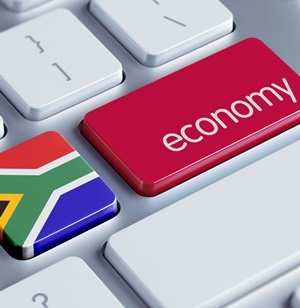
If Africa is to overcome structural poverty those involved in policymaking and implementation should focus on pro-poor growth that directly expands the incomes of the impoverished.
This is the recommendation of Africa’s Pulse, a bi-annual World Bank publication released this week.
The authors of the publication unveiled in Washington, DC, by World Bank vice-president for Africa Hafez Ghanem, argue that there has been too much focus on maximising growth and not enough on “distribution channels” that get the outcomes of economic expansion into the pockets of citizens.
If the current levels of income distribution and poverty reduction persist, the continent could miss out on meeting the UN Medium Development Goals target of eradicating poverty by 2030. Africa Pulse postulates that “50 million more people could be lifted out of poverty by 2030 if the incomes of the poor were to grow 2 percentage points faster annually”.
According to the report, the failure of GDP growth into income growth has resulted in Africa’s rate of poverty reduction being slower than in other regions despite robust economic expansion over the past 25 years. It suggests “a poverty reduction strategy with a jobs lens” in which an environment is created to produce “good jobs” that raise the incomes of the poor. These will necessarily be in sectors that are intensive in the use of labour and land – “the assets of the poor”, as the report calls them.
“The key principle of engagement to accelerate poverty reduction is that interventions should be designed so that the poor benefit as directly as possible, enabling them to be in the driver’s seat of their wellbeing,” the report says.
Another immediate action punted by the World Bank document is integrating interventions so that they complement each other. For instance, youth skills training must be aligned with demand for it; agricultural machinery subsidisation must be aligned with maintenance and repair services and irrigation infrastructure must be accompanied by the presence of proper water maintenance systems.
Noting that the spread of digital technologies and solar power is providing new opportunities for the continent’s people, the report proposes that these be seized on to “leapfrog” over the lack of developed infrastructure on the ground; in communications with markets and boosting productivity. “The poor can benefit from these leapfrogging technologies directly, as adopters, through greater access to productivity-enhancing capital goods.”
The report shows the World Bank had cut its economic growth forecast for sub-Saharan Africa for this year to 2021 by 0.2 percentage points from its earlier projection, citing a slowdown in fixed investment and policy uncertainty in the global economy.
The bank said the region’s economy was expected to grow 2.6% this year, from a 2.8% projection in April. It said growth would rise to 3.1% next year and 3.2% in 2021.
“Despite some improvements, the external environment is expected to remain difficult and uncertain for the region,” the bank said in this month’s Africa’s Pulse report.
China and the US, the world’s leading economies, this year imposed new tit-for-tat tariffs on each other’s goods as part of a long-running dispute over Beijing’s trading practices, which Washington says are unfair.
Those tensions, plus the softening global growth and falling commodity prices, compounded by the slow pace of reforms in African countries, “are weighing on activity across the region”, the bank said.
On the continent, drought, security threats, increases in the cost of public borrowing and private investment were also slowing growth. Nigeria, South Africa and Angola, which make up about 60% of sub-Saharan Africa’s annual economic output, were all facing various impediments, the bank said.
South Africa’s economy would expand 0.8% this year, from a 1.3% forecast in April, and growth would rise to 1.0% next year from the World Bank’s April forecast of 1.7%, it said.
The bank said it made the cuts in its forecasts for South Africa due to the sharp slowdown in GDP growth in the first quarter of this year, low investor sentiment and persistent policy uncertainty, including whether a solution could be found for state power firm Eskom.
The bank said Angola’s economy would grow 0.7% this year, from a World Bank projection of 1.0% in April.
The rest of sub-Saharan Africa – excluding Nigeria, South Africa and Angola – is expected to grow 4.0% this year from the bank’s 4.4% projection in April, and 4.7% next year and 4.8% in 2021 in line with its April forecasts.
The bank said the proportion of African countries determined to be in debt distress or in high risk of external debt distress had doubled, but the pace of deterioration had reduced. – Additional reporting by Reuters
| |||||||||||||
| |||||||||||||




 Publications
Publications
 Partners
Partners








